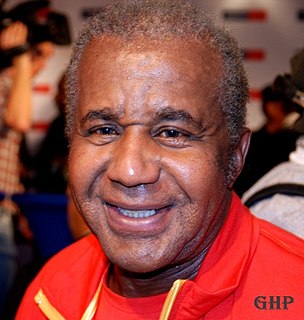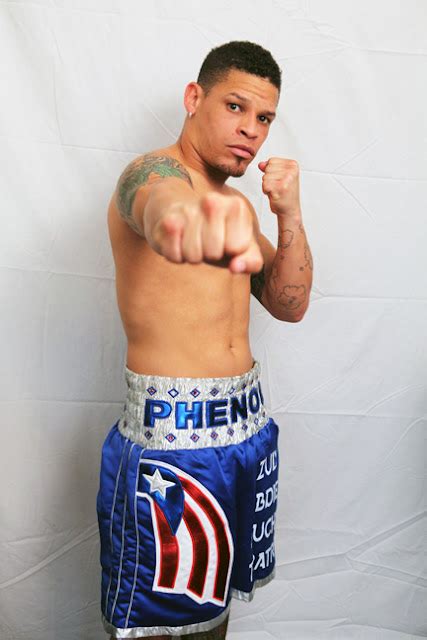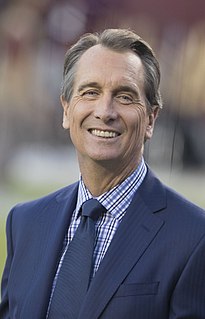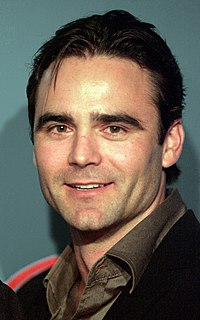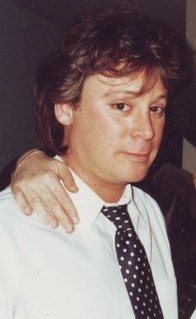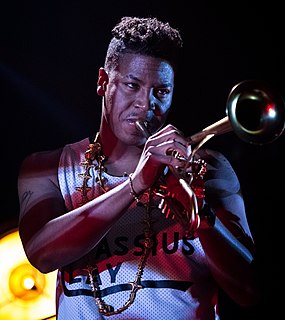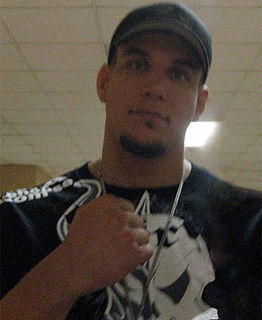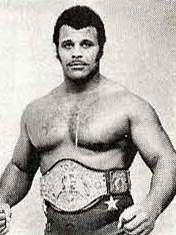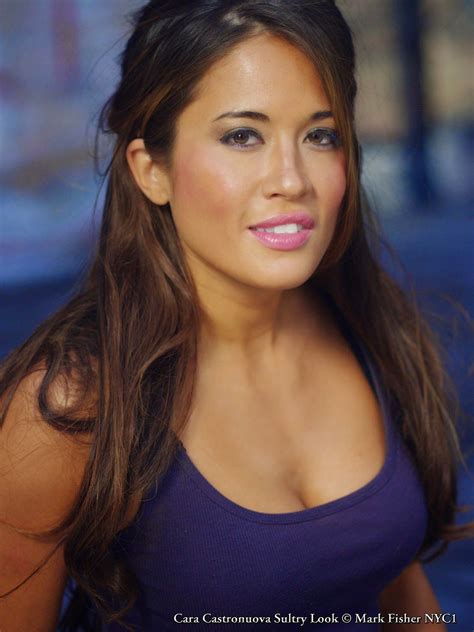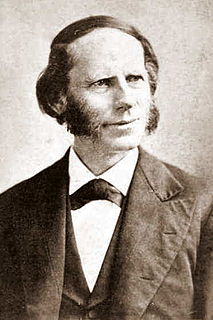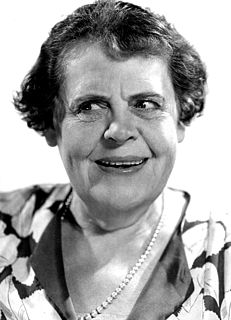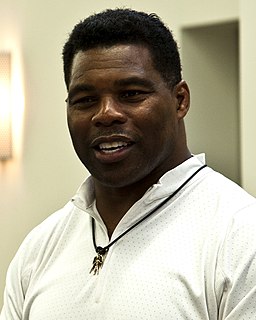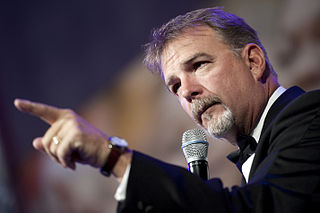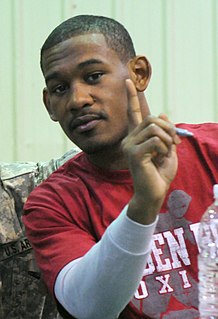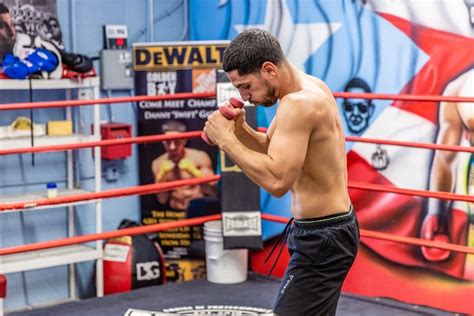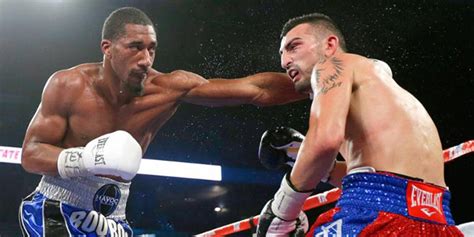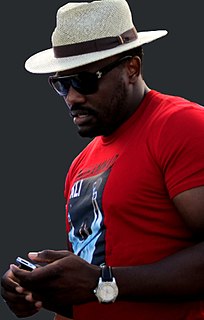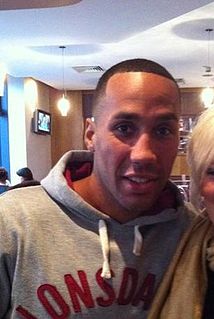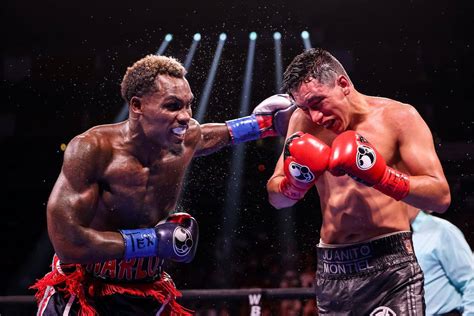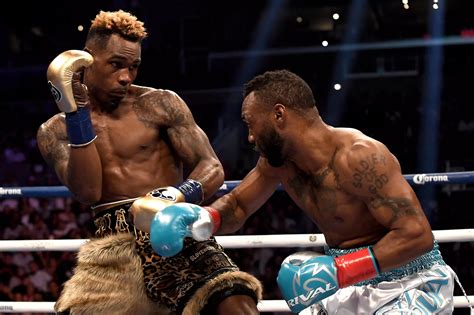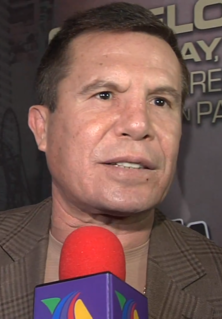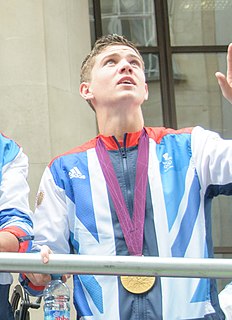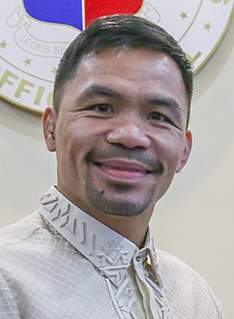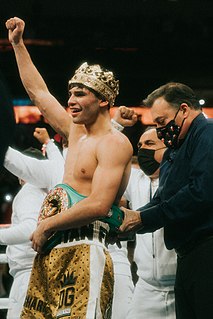A Quote by George Foreman
When I found Jesus Christ, I learned to be a better athlete. I didn't have to go out there and knock them out in the first round. I've learned to be patient, skillful in the ring. At the same time, I wanted to prove to other boxers that you can take off this killer instinct stuff, you can be a great athlete, a great boxer, and love your brother.
Quote Topics
Related Quotes
I came out as a gay as I have earned myself respect as an athlete. I have only lost 2 out of 22 professional fights. I knocked out some of my opponents in the first round. But I never really received respect as a person. That's something I had come to realize over the past few years. The end of my boxing career is no longer that far off, and it was time for me to make peace with myself. And there was a second reason for me to come out: I hoped it would make me a better boxer.
I tell my kids all the time, 'I want you to be a great athlete, I want you to be great academically, I want you to achieve a lot of things, but mostly I want you to be a great person. If none of the other stuff happens and you're a great person, then I'm okay with anything else that happens in your life - that's the highest standard.'
McLeod's Daughters was my first regular job out of drama school, and my first full-time role. That was great because I learned a lot, in terms of working in front of the camera. I learned a lot of technical aspects that you take for granted once you know them, but you have to learn them somewhere, along the way. It was a bit of a training ground for me, working in front of the camera and also dealing with media.
I hated motivators - never been a motivator. Motivation is like a warm bath, and you should take a bath probably, but you need more than that; you need strategy. I was a strategist, but nobody responded to that, so I was, like, "OK, what am I? I'm a coach. I'm not a guru." As an athlete, I had great coaches, and I was a better athlete than many of them, but they still were better than I was as a coach because they could see when I couldn't see. I thought, that's great, because I'm not better than anybody, but I do have the skills that I can help people.
I was a really good youth boxer, and I enjoyed the sport very much. Once I actually started to play the trumpet, it is very similar to boxing. Most of the great trumpet players boxed: Miles Davis was a boxer, Wallace Roney is a boxer, Terrence Blanchard is a boxer. In a boxing ring, no one can help you. It's just you and the other guy, and your job is to get him out of there, to outscore him in the best sense of it. When you learn to box, the first thing they teach you is to protect yourself at all times, and some people also learn that they like being hit.
It's not just the physical aspect of boxing, it's the whole fighter mentality that has been ingrained in me through the years as a competitive athlete. One of the hardest things you'll ever do is to box - to get into the ring and to face off with somebody whose whole goal is to knock you out, to hurt you, and to be able to fight back.
There is something that can happen to every athlete and every human being; the instinct to slack off, to give in to pain, to give less than your best; the instinct to hope you can win through luck or through your opponent not doing his best, instead of going to the limit and past your limit where victory is always found. Defeating those negative instincts that are out to defeat us, is the difference between winning and losing - and we all face that battle every day.
The mob that hounded Christ from Jerusalem to "the place of a skull" has never been dispersed, but is augmenting yet, as many of the learned men of the world and great men of the world come out from their studies and their laboratories and their palaces, and cry, "Away with this man! Away with him!" The most bitter hostility which many of the learned men of this day exercise in any direction they exercise against Jesus Christ the Son of God, the Saviour of the world.


